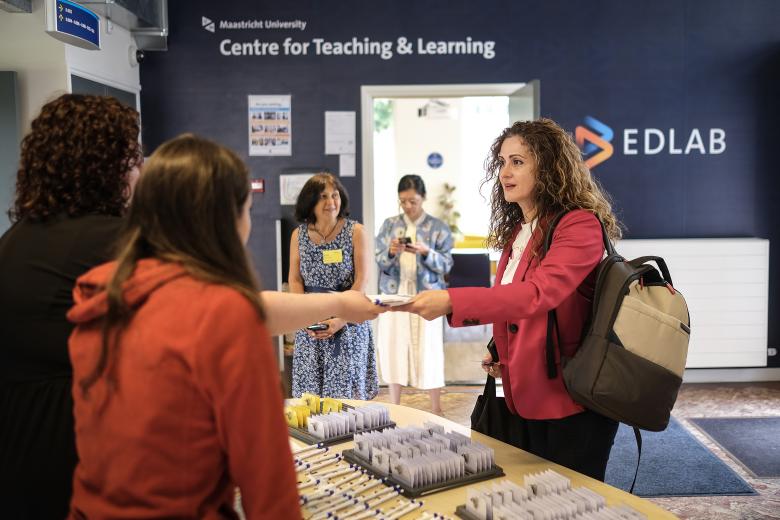UM Education Days 2024
Do you have a passion for Teaching & Learning?
The UM community of teachers and learners is vibrant, diverse, and full of creative and innovative ideas and initiatives. To bring all this creativity and dedication together, EDLAB organises UM Education Days revolving around the awareness that Teaching & Learning go hand in hand.
Join us on 12-13 June 2024!
"The UM Education Days are like a great candy shop, where we can look at what others have done, have created, and showcase our own work."
Iris Burks, Chair UM Student Guidance, 2023 speaker and participant
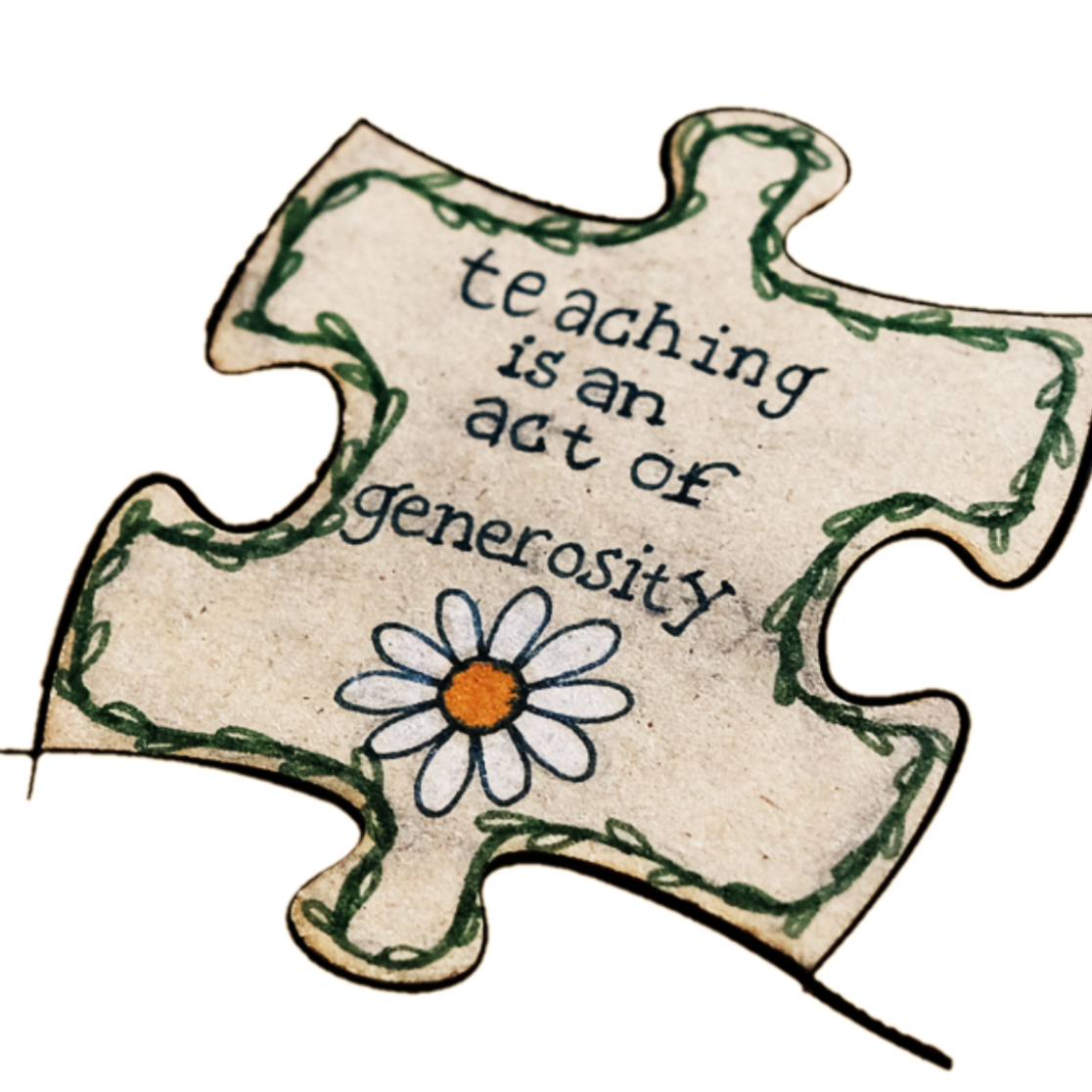
Inspiration for innovation
Do you enjoy trying a new approach in your education, a provocative perspective, new tools & formats, and exciting and meaningful ways to connect the university with the world? Come and share what you do and what inspires you, as it is bound to inspire others, too!
Programme – Day 1
Opening - 9:30-10:15
In this opening session, together with our Rector Magnificus, Pamela Habibović and EDLAB Director, Ellen Bastiaens, we’ll be welcoming you to the UM Education Days 2024. Expect a session full of lively engagement and meaningful connections that sets the stage for the next two days.
Some playful reflections await…
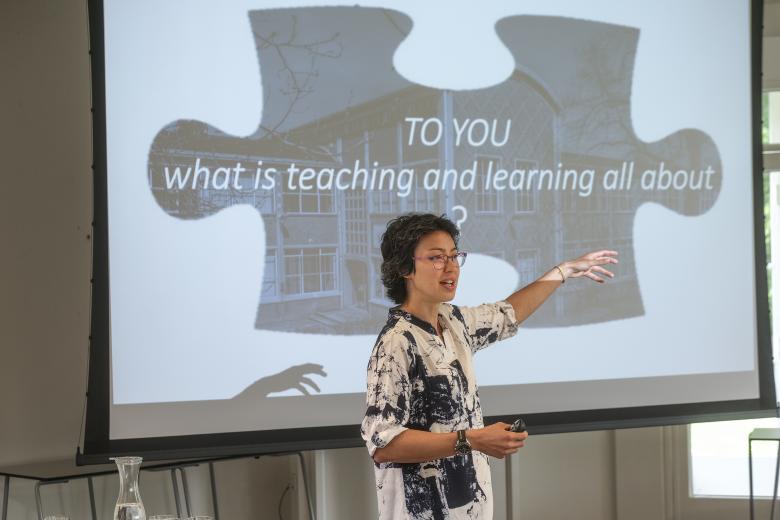
Sessions round 1 - 10:30-12:00
- EDLAB Education Research Fellows workshop by Anke Sambeth: In this workshop organised by the EDLAB Education Research Fellows, we will dive into the world of educational research. Brace yourselves, you will have to work for, and of course also with, us! In a gallery walk format, the attendees will (literally) move from topic to topic and discuss how educational research can help us develop better educational activities and improve educational designs. We will seek your input on topics such as: how can technology and CCCS principles advance Problem-Based Learning in STEM? Or what are the possibilities and limitations of AI as an educational tool? And how can student evaluations become a catalyst for teachers' personal and professional growth? We look forward to seeing and walking with you!
- Giving your course evaluation the power it deserves by ESAB: Feeling out of touch with course evaluations? You're not alone. Many students struggle to see how their feedback makes a difference. On the other hand, educators have difficulties with getting an objective understanding of how students perceive a course if the response rates are not optimal. This workshop looks into why this happens and how we can make evaluations matter more. We'll share findings from a recent student survey, showing why evaluations for students often feel like just a formality. But we're not stopping there. We want to work together to come up with solutions that really empower the students to give feedback. This session is your chance to make a difference in your courses and make sure that the student's voice is heard by teachers and educators. Grab this chance to turn evaluations from a dull task into a powerful tool that improves learning for everyone. We are looking forward to a lively discussion between students and educators!
- Have you ever heard about robot-centred learning? by Rico Möckel: Would you like to explore how you can maintain high engagement and stimulate curiosity-driven research of students during your course (and beyond)? How you can make your course assignments engaging at a time when students are tempted to use ChatGPT? How you can provide more individual educational experiences for students despite teaching a large pool of students? How robots and AI can be used to encourage collaboration and support students during their learning experience? In this session, we will provide concrete examples of how we tackle these questions in some of our UM courses at the Department of Advanced Computing Sciences using robot-centred learning. We also explain how our passion for teaching and research led to an interdisciplinary interfaculty research collaboration in which we are transferring our insights into new experiences for primary school students. And, of course, we will bring some robots for you to try out. You are not working with robots in your education? No worries, we will explore with you how the discussed concepts and insights on robot-centred learning can be transferred also to other courses.
- Playful Pathways: Interactive Tools and Games for Enhancing Mentoring Sessions by Oscar van den Wijngaard and Iris Burks: Elevate your mentoring sessions to new heights by infusing them with playfulness and interactivity! In this session, we'll unveil a diverse array of tools and games that can be extremely helpful to invigorate mentoring dynamics, foster engagement, and amplify outcomes. From trust-building icebreakers to introspective activities promoting self-reflection and goal-setting, participants will immerse themselves in practical strategies to enrich their advisory and coaching practices. Gain first-hand experience with these transformative tools and unlock insights into their integration within various group settings, including academic advising and mentoring. Whether you're a seasoned mentor or just starting, discover innovative approaches to enhance the impact and enjoyment of your group advising and coaching sessions. Don't miss this opportunity to revolutionise your mentoring approach—join us and embark on a journey toward more vibrant, fulfilling, and effective mentoring experiences.
- Problem-based learning in large groups by Nicole Kornet: Problem-based learning is commonly understood to be small-scale education with a maximum group size of 15 students. But is it possible to foster constructive, contextual, collaborative and self-directed learning in larger groups? This working session at the UM Education Days will focus on the question: is PBL in a larger group possible? The working session will explore how constructive, contextual, collaborative and self-directed learning could be implemented in larger groups. During this working session, Nicole Kornet will share some of her experiences with implementing the CCCS principles in groups of 50 students at the law faculty with a view to discovering with participants some of the opportunities and challenges of PBL in larger groups.
- [Cancelled] Woke as Science Live by Constance Sommerey and Darian Meacham
Lunch
Exchange your insights from the first session and get to know your colleagues while enjoying a delicious lunch!
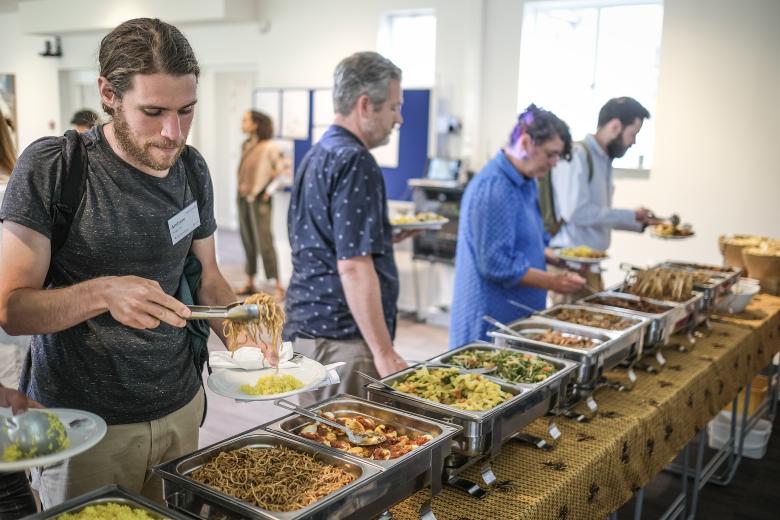
Sessions round 2 - 13:00-14:30
- Advising research panel: the do's and don'ts of reflection by Oscar van den Wijngaard and Iris Burks: The value of reflection in learning can hardly be overestimated. Reflection helps students improve their academic performance, develop their competencies, become more employable, help them with decision-making, and support them in becoming lifelong learners. However, there are several significant barriers for students to engage in the kind of reflection that actually helps them learn and grow. Making reflection part of the learning experience requires skillful design from those who develop such exercises. Based on their combined research findings, a group of UM researchers on mentoring, coaching and advising will present recommendations for those who want to help students engage in authentic, helpful reflection. The session will provide ample time and structure to discuss the purpose and conditions for authentic reflection – in general, and in the context of specific courses and programmes.
- Are your students information wise? by Marieke Schor and Leonne Portz: With today's wide availability and easy accessibility of information, it is more important than ever to ensure students develop the skills and critical attitude necessary to work with information sources effectively and efficiently. The University Library recently completed a redesign of the skills modules developed in the 2019 Information Wise project. These shorter and more focused online modules should be easy to integrate into new and existing curricula and allow for better alignment with the programme- and year-specific aspects of information literacy. In this session, we will first present the new modules and results from our pilot integration into a first-year bachelor's programme. We will then discuss ideas for sustainable implementation of these modules in your programmes. Moreover, we would like to discuss desirable additions to our current suite of modules, for instance about AI-based tools and data literacy.
- Getting groups on track by Jean-Paul Stijnen: Group work can be a valuable experience for students, helping them to gain new skills and learn from each other. For teaching staff, however, it can sometimes be challenging to keep track of what is happening and facilitate the process in the best way to get the most out of the group. In this workshop, we will discuss how to empower groups to work independently and to stay on task, whilst retaining a clear overview of the process. This training session focuses specifically on facilitating effective group dynamics in project teams, and tutorial groups. We will be working on questions like: how can I ensure that the group members quickly connect with each other? How can I work on trust within a group, so that more openness and involvement arise? What do I do if the group is not functioning well? Team Focus is known for its experiential learning approach, which makes every session very insightful and meaningful but also a lot of fun. This session will take place on the grounds of Tapijn.
- Meaningful reflection for professionalisation in teaching and learning by Eveline Persoon: This interactive workshop, open to teachers and students alike, explores meaningful reflection, a process for analysing past teaching and learning experiences and turning them into tools for further (professional) development. After opening the session with a practical exercise to illustrate how professional events can trigger a need for reflection, we’ll continue exploring various reflection models, focusing specifically on the ALACT Model by Fred Korthagen. This model goes beyond the analysis of a particular event. It helps you identify key elements of past situations, brainstorm alternative approaches, and critically analyse the outcomes. This creates an action-driven reflection cycle to track progress and enhance professional growth. Together, we’ll explore how reflection on your actions fuels (professional) development in teaching and learning, discover the ALACT Model and its effective use and discuss the connection between theory and practice in meaningful reflection.
- Stepping outside of the classroom by Fleurie Nievelstein, Eliza de Sousa Fernandes Perna and Xanthate Duggirala: Problem-Based Learning (PBL) at Maastricht University allows for creative and diverse learning formats, encouraging teaching staff to enrich their teaching and learning practices, including classroom activities. In this workshop, we will reflect on a practical assignment in which students have to systematically observe natural human behaviour outside the classroom by testing psychological theories in the field. Based on several examples of ‘learning outside the classroom’, we will share insights and good practices related to this kind of learning activities and the impact these practices have on both students and their environment. We will provide tips on how to bring your classroom outside and will discuss (ethical) barriers to consider. We will explore and think along with your ideas to shape your ‘outside-of-the-classroom learning practice’.
- Talent scouting (and development) from a student tutor perspective by Carolina Cicati and Catherine de Rijdt: UM wants to stimulate talented students by offering them additional challenges. Therefore, PBL tutorial groups are not only facilitated by staff tutors but by student tutors as well. The UM guides student tutors through this process, assisting them in managing this amazing but serious and challenging responsibility. In this session, we will hear stories from (ex-)student tutors exploring the significance of taking this role for their development. What does it mean to be a student tutor? How does this role influence their academic, social, professional, psychological, and personal gains? What is the perception of trust and exercise of authority in tutorial groups facilitated by student tutors? This session is interesting for current student tutors seeking insight into the experiences of their peers in the same role. It holds appeal also to students who are aspiring to become tutors, taking a glimpse into this role. The academic and support staff working with student tutors will find this session beneficial too.
- VR-enhanced Sense-based Learning by Roberta di Palma: In this engaging workshop, SBE's DEXLab will delve into the innovative application of virtual reality technology to enhance sense-based learning. We will present two compelling use cases demonstrating VR's capacity to create immersive, multisensory learning experiences that have the potential to benefit educational outcomes. Our first case study will focus on the use of VR for professional skill acquisition. The second case will explore how VR can transform the assimilation of academic course content.
Tea & coffee break
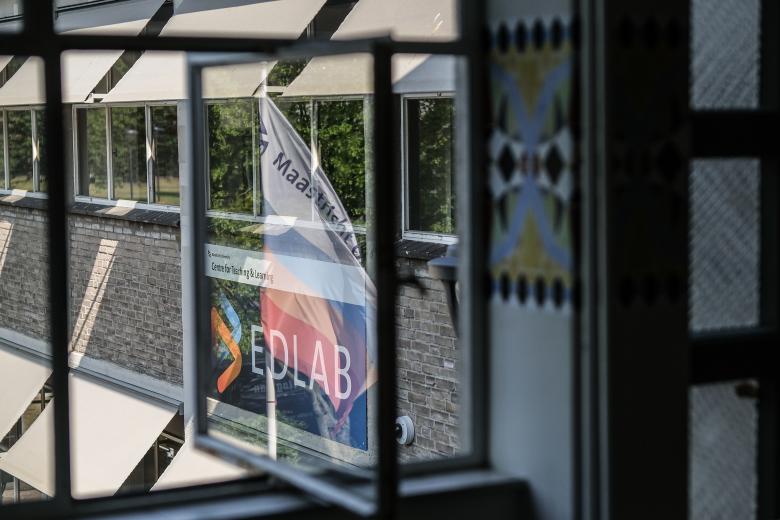
Sessions round 3 - 15:00-16:30
- Creative workshop: Moss-map your education by Burak Can: Join us for an exciting hands-on experience where you'll explore the power of nature and creativity. Using live moss and wooden printed frames, you'll create a stunning green wall mindmap that visualises a challenge in your studies or work. Not only will you discover the benefits of incorporating living plants into your workspace, but you'll also gain insight into innovative visual thinking techniques to tackle complex problems. With guidance from our expert instructor, you'll create a unique and personalised green wall mindmap to proudly display in your workspace, serving as a source of inspiration and motivation. Don't miss this opportunity to unleash your creativity and enhance your problem-solving skills! This year, we'll reflect on the plant's resilience and adaptability, and explore how these qualities relate to personal growth and emotional regulation. Join us for this engaging moss-based workshop, where creativity, art, and reflection come together.
- EduGrants – promoting education innovation in the classroom by EduGrants winners: Over the last three years, EDLAB awarded grants to more than 20 projects focusing on education innovations in the PBL classroom. Project topics include a.o. blended learning, feedback, VR in education, new media & education, PBL problems and creativity. During this session, previous grant winners will showcase results, products and innovations whereas more recent grant winners will introduce their projects to you and respond to any questions and ideas you may have. Have a look at these short videos of current and previous EDLAB grant projects.
- How to motivate students by Team Focus: In this workshop, we will discuss how people are motivated and how you can use this to facilitate an environment in which students learn and grow. With a focus on group work and group learning, we will work on questions like: what different kinds of motivations are there? How to adapt your teaching style to foster growth in students? How do we create an environment that helps students learn and grow? Team Focus is known for its experiential learning approach, which makes every session very insightful and meaningful but also a lot of fun. This session will take place on the grounds of Tapijn.
- Showcasing innovative teaching practices from the UTQ programme by Eveline Persoon: Join us for an exciting showcase of various examples from teachers and educators who completed their University Teaching Qualification (UTQ) programme in which they experimented with innovative teaching practices. During this session, various members of our UM teaching community will provide a 10-15 minute interactive pitch explaining their innovative teaching practices. Together, we will then reflect on their ideas, challenges, and insights, highlighting the importance of exploring educational frontiers while teaching at UM.
- Student perspectives on the responsible and effective use of LLMs in education by Rafael Diederen and Alexander Padula: This workshop, led by students from the Department of Advanced Computing Sciences (FSE), explores how students use Large Language Models (LLMs) like ChatGPT to support their learning. Everyone is welcome to join the workshop. We'll start with exercises that will help you gain insights from the student perspective and hear how students navigate these tools for educational enrichment, not as a shortcut. Together, we’ll discuss strategies for designing assignments that encourage critical thinking and creativity even in an environment rich with LLMs. We’ll also explore ways to promote the ethical and effective use of these technologies, ensuring they enhance learning rather than undermine it.
- Tool taster for tea - tech tools in education by Gaby Lutgens: Are you curious to know what tools UM offers for your education? Or interested in how others adapt their course design to optimise the use of tools in their classes? Do you want to know more about how EDLAB and the library join forces in providing support for innovative educational practices? Sign up for the Tool taster session! We will introduce you to the e-portfolio implementation trajectory (and what this means for you). We will share practices from the VR-enhanced PBL project and will offer you a taster from the AI in Education community. But tasting is nothing without discussing the recipe and cooking yourselves, so get ready for an interactive session in which you can share your experiences and provide input for a platform on which you can find all the above mentioned ingredients and recipes on a structural basis.
Drinks
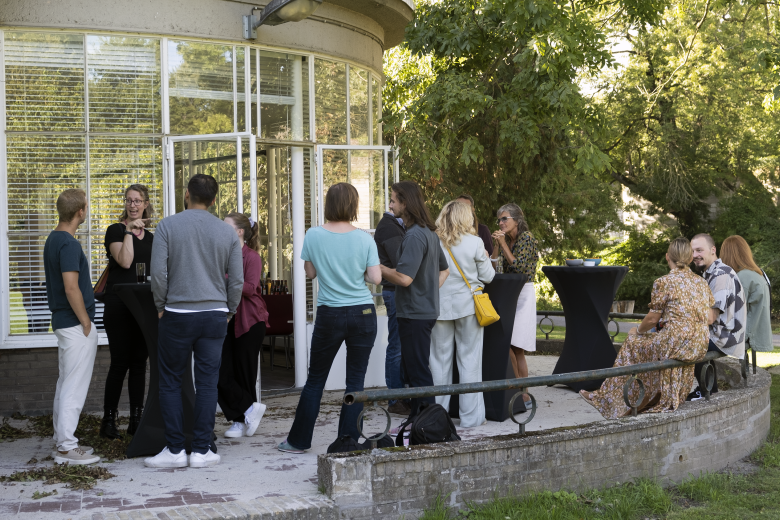
Programme - Day 2
Sessions round 4 - 10:00-11:30
- A breath of fresh air: outdoor learning across and beyond the natural sciences by Phil Klahs: Could abundant oxygen and change of scenery improve your student’s recall of specific topics? This workshop aims to demonstrate how outdoor spaces can be used for a range of disciplines and learning activities. During the workshop, we will discuss the qualities of suitable outdoor learning opportunities and locations, considerations for preparing effective material, and strategies for shepherding student’s attention. Taking a group of students outside the classroom may increase potential distractions but likewise can stimulate learning if expectations are clear. Navigating distractions may actually provide a more contextual learning environment, and develop skills necessary for their future investigations beyond our classrooms. These topics will be followed by an active excursion through the adjacent Tapijntuin and Stadspark areas of Maastricht. NB: This session will involve an outdoor excursion. We will endure regardless of weather, so please be prepared.
- Cultivating an entrepreneurial mindset in teaching by Roy Broersma: Join us for an interactive session designed to equip you with the skills and outlook of a true entrepreneur! This workshop will equip you with strategies to develop innovative solutions to everyday classroom challenges. You'll learn to identify opportunities to make learning more engaging and impactful for your students. Collaborate with fellow educators, brainstorm fresh ideas, and share best practices to tackle common teaching hurdles. By the end of this workshop, you'll walk away with a fresh perspective on teaching and a repertoire of new strategies.
- How adaptive is your expertise? by Hans Savelberg, Roy Erkens and Diana Dolmans: Professionals increasingly encounter new and complex situations in their work, partly due to the social challenges in our society. This means that in our education, we need to train professionals not only to acquire routine expertise but also to acquire adaptive expertise needed to respond to these new situations. In this workshop, you will get insights into how to encourage the development of adaptive expertise in education, based on results from the NRO research project Adapt at Work. We will start with a short explanation of a tool we developed based on research results, after which participants will work in subgroups to gain insights into key features of learning work environments that stimulate the development of adaptive expertise of students.
- How do you reach your audience with your voice? by Berbke Hermans: You want to tell an interesting story to your audience. You want them to understand the importance of the story. The text itself does some of the work, but you, being the speaker, can also greatly influence the impact that it has on your audience. This workshop focuses on the speaker's voice, pronunciation and expression. How does your voice sound (high, low, loud, soft, clear, hoarse)? In what way do language and articulation affect understandability? How can you strengthen your story through your expression (rhythm, melody, dynamics and the colour of the voice)? What influence do space and your physical presence have on this? And in what way do you maintain freedom as a speaker? Having just a good technique does not make you an inspiring speaker, we also want to keep in touch with the person telling the story. And what to do if you have to tell your story in another language than your mother tongue? With a keynote as a guide, this primarily is a practical workshop, where all participants are invited to join the various exercises.
- In search of a (new) story... by Niklas Wenzel: In the opening ceremony of the current academic year, UM President Rianne Letschert said: “Our culture seems obsessed with quantifiable success, status, and performance pressure. And this is so prevalent, in so many places, that it almost seems normal”. This observation, to me, rings true. At the same time, our university also seems obsessed with fostering well-being and happiness. And this is so prevalent in so many places that it almost seems abnormal to be well and happy. Naturally, the desire to be a caring university is laudable. But we shouldn’t forget to encourage our students to explore their own limits, fail, and grow from their experiences – after all, most of them will leave the caring environment we provide. This state of affairs requires a new story – one that has to emerge from within the UM community, rather than one that is imposed top-down. Therefore, in this workshop, we will start by going inward, to remind ourselves and our students why coming to UM could and should be an exciting journey. And to find out how we can encourage everyone involved to take on their role in this journey courageously.
- Personalised testing - an engaging approach to assessment by Maartje Hensgens and Michael Capalbo: Are you looking to make your assessment motivating, efficient and ChatGPT-ready? Personalised Testing in TestVision might be the answer. Michael Capalbo (FPN) wondered how he could tailor his assessment to the individual student and investigated ways to increase learning and exam satisfaction for large cohorts of students. With the support of a Comenius teaching innovation grant and working with TestVision, he developed a "Personalised Test". In a Personalised Test, students can choose, beforehand, on which subjects they want to challenge themselves more. A Personalised Test contains two parts: a mandatory part and a 'distributable' part. The compulsory part offers a set number of questions that all students must complete. The distributable part allows students to distribute the questions across the subject matter themselves. This way, students can opt for more questions on a specific topic based on their interest or understanding. Michael's research showed a significant increase in perceived enjoyment, fairness and control.
Tea & coffee break
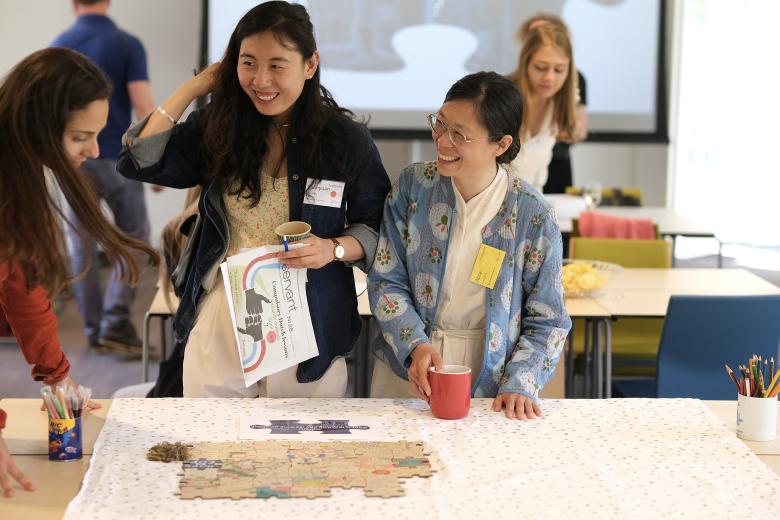
Sessions round 5 - 11:45-13:15
- Boosting student discussions in tutorials by John Harbord: Engaging students in meaningful, genuine conversations in the context of PBL is not an easy task. The perceived complexities of good classroom management mean that when they talk at all, students almost always address the whole class. Many tutors at UM may not be aware of the benefits of techniques such as cross grouping and pyramid grouping, or may even be reluctant to put students into threes for discussion. A wide variety of techniques, however, are available to teachers/tutors to arrange how and between whom classroom discussion takes place (classroom management). These techniques have been extensively used in other student-centred teaching methods, such as communicative language learning, but have been largely neglected in PBL. As a result, opportunities for building group dynamics and ensuring the participation of quiet students are missed. In this session, using experiential activities, I hope to show that thoughtful tutor interventions in classroom management can boost discussion and participation, increase the number of perspectives discussed, and, at the same time, be student-centred. Participants will come away with a range of techniques and tools to facilitate good PBL discussion in class.
- Educational Design Research - bridging theory and practice by Diana Dolmans and Boukje Compen: Educational Design Research (EDR) or Design-Based Research (DBR) is an approach that helps in analysing significant challenges or problems in the field of education while also facilitating the development and evaluation of creative solutions. In this session, we will ask the participants to take on the role of stakeholders in a simulated project that aims to address an important educational challenge using the EDR approach. Our goal is to inspire the participants to start thinking about their own innovation projects in the field of education.
Expert insights: navigating Open Science in education by Michel Saive, Hans Maarse, Costas Papadopoulos, Antonia Waltermann and Leo Köhler: Are you seeking innovative approaches to educational materials and methods? Explore our Q&A session with an expert panel on Open Science in Education. In this session, we delve deep into the world of Open Educational Resources (OER) and how they are shaping the future of education. Whether you are looking for inspiration to revamp your teaching methods, seeking concrete tips for integrating OER into your courses, or simply wanting to deepen your understanding of Open Science in Education, our expert panel will share their experiences, insights, and practical advice.
Explore innovative approaches to educational materials and methods with our expert panellists:
1. Leo Köhler (FHML) spearheaded the TOOL Anatomy project, fostering collaboration among Dutch and Belgian universities to develop and share open anatomical learning materials via AnatomyTOOL.
2. Hans Maarse (FHML), Emeritus Professor, published UM's first open textbook via Maastricht University Press, "Health Policy Analysis, An Introduction," advancing open science in the field of public health and policymaking.
3. Costas Papadopoulos (FASoS) integrated OERs into the course design via #dariahTeach, enhancing student engagement with interactive open learning materials.
4. Antonia Waltermann (LAW) shared legal open educational resources on an OER repository, promoting accessible knowledge and interdisciplinary training in legal reasoning and cognitive science through the project RECOGNISE.
- Understanding our first-year students by Jacqueline Charpentier and Denise Villerius: Who are the first-year students we welcome to our university every year? What drives them, what are their expectations – and what should we be aware of as we help them get started on their student journey? In this session, we will delve deeper into the social-emotional skills of secondary school students. How do secondary school students perceive their social relationships, and how are they influenced by them? What do we know about how they have been feeling lately and what matters to them? And how does this relate to the expectations they themselves create about their future studies? We'll present results from recent studies we conducted at secondary schools in Limburg. We'll then invite you to discuss the implications of what we found. Do these observations resonate with our experiences as we teach first-year students? Can we, as educators, benefit from a better understanding of the expectations and social frames of reference of our incoming students? To what extent should that affect the way we organise our teaching in the first year?
- Unlocking the potential of generative AI in course design by Michalina Kaminska: In this interactive workshop, you will explore how generative AI can assist you in your teaching tasks and become a part of your course. After a brief introduction to the technology and examples of its capabilities, you will discuss concrete ideas for AI use in sub-groups. We will pay special attention to how AI can support the learning goals and what limitations you and your students might face. You will leave the workshop with a better understanding of generative AI’s potential in course design and actionable ideas for your course.
- Using competition to create engaging assessments by Martijn Boussé: This workshop explores how a friendly competition exercise can improve student motivation and confidence, even in challenging subjects. Martijn Boussé will take you through his experience implementing a competition in his calculus course and its impact on student engagement. In this immersive session, you will experience a simple competition inspired by a Calculus course - don’t worry, no advanced math is needed! – and learn how the Constructive, Collaborative, Contextual, Self-directed principles of Problem-Based Learning can be applied to create assessments in your own courses.
Wrap-up lunch - 13:15-14:15
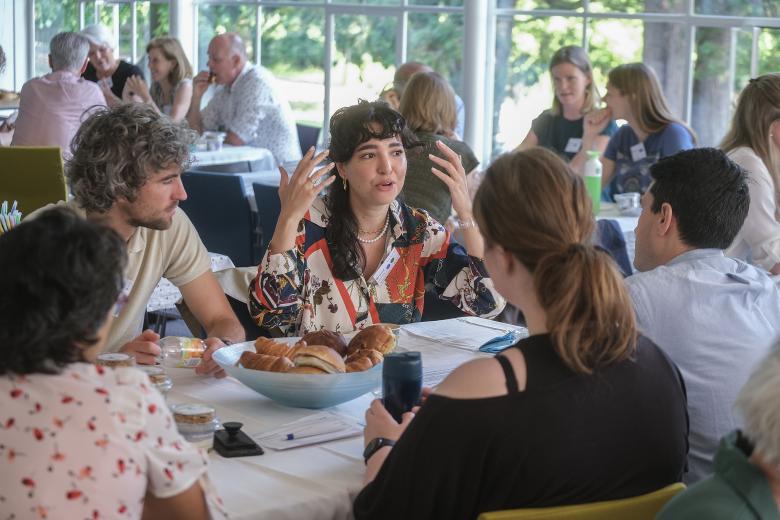
UM Education Days 2023 aftermovie
To You, what is Teaching & Learning all about? This question was the main theme of the second edition of the UM Education Days on 7-8 June 2023, when over 140 colleagues and students, along with 30+ presenters from various departments of Maastricht University, came together for two days filled with discussions, workshops, and networking opportunities at EDLAB.
Visit our recap of the UM Education Days 2023.
Contact
For any inquiries, please feel free to contact the UM Education Days team at EDLAB, where Oscar, Lena, Iveta, Marie-Lou and Sueli will be happy to assist you.
